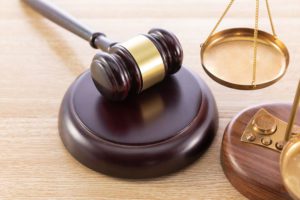 The Court continued in relevant part: Defendant was tried before a jury over twenty-eight trial days beginning in March 2016. On the third day of jury deliberations, the trial court received a note from a juror stating that “research was done by Juror No. 1 as to the FBI’s protocol back in the 1990s.” The court immediately suspended deliberations. None of the eleven remaining jurors indicated that they had conducted independent research, and five denied knowledge of Juror No. 1’s independent research. Six jurors stated that they had heard a comment about the juror’s research regarding FBI protocols but said the comment had no effect on their ability to fairly decide the case. The trial court dismissed Juror No. 1 and substituted an alternate.
The Court continued in relevant part: Defendant was tried before a jury over twenty-eight trial days beginning in March 2016. On the third day of jury deliberations, the trial court received a note from a juror stating that “research was done by Juror No. 1 as to the FBI’s protocol back in the 1990s.” The court immediately suspended deliberations. None of the eleven remaining jurors indicated that they had conducted independent research, and five denied knowledge of Juror No. 1’s independent research. Six jurors stated that they had heard a comment about the juror’s research regarding FBI protocols but said the comment had no effect on their ability to fairly decide the case. The trial court dismissed Juror No. 1 and substituted an alternate.
In accordance with the applicable model jury charge, the trial court instructed the reconstituted jury to deliberate anew. The jury found defendant guilty of first-degree purposeful or knowing murder. Defendant moved for a judgment of acquittal on the ground that the evidence was insufficient to support the jury’s verdict. She also moved for a new trial based on the substitution of Juror No. 1. The trial court denied both motions, and defendant appealed. The Appellate Division affirmed.
Limiting its review to the State’s evidence, the court held that the State presented sufficient evidence to warrant denial of a judgment of acquittal. The court also affirmed the denial of defendant’s motion for a new trial based on the dismissal and replacement of Juror No. 1. The New Jersey Supreme Court granted defendant’s petition for certification.
This case ended up with a 3-3 vote before the New Jersey Supreme Court because the seventh Justice (Chief Justice Rabner) recused himself from hearing the case. Judges usually recuse themselves because of a conflict of interest or the appearance of impropriety. The Chief did not publicly announce his reason for the recusal. One explanation might be that he watched and felt influenced by the episode of America’s Most Wanted that profiled the case. A more likely explanation is that the Chief worked for the U.S. Attorney’s Office while the case was under federal investigation.
